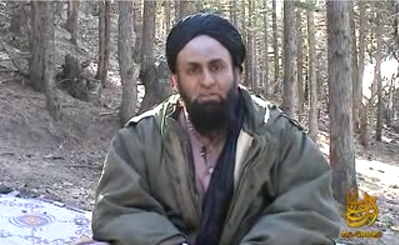
Over the past year or two, with the death of many senior leaders as well as al-Qa’ida’s longing for religious legitimacy, Khalid bin ‘Abd al-Rahman al-Husaynan (Abū Zayd al-Kūwaytī) has risen in the ranks and has been described by Jarret Brachman as “Zawahiri’s in-house version of Awlaki” and by Christopher Anzalone as part of al-Qa’ida’s “missionary vanguard.” I would simply describe al-Husaynan as al-Qa’ida’s head of da’wah (the call to Islam/proselytization). Surprisingly, little has been written about al-Husaynan.
With the rise of Abu Yahya al-Libi from 2005-2008 many saw al-Libi as a potential Bin Ladin successor or at least al-Qa’ida’s main religious mouthpiece. Indeed, al-Libi has touched upon religious areas and performed al-Qa’ida’s khutabahs for ‘Id al-Fitr and ‘Id al-Adha, but al-Libi has also been a figure that discussed political issues just as much as religious ones. In contrast, al-Husaynan more or less has stuck to purely religious topics, not mixing his lectures with political overtones. This is important to note because many in the Muslim and non-Muslim world have questioned al-Qa’ida’s Islamic character (and not to mention the fact that 9 in 10 individuals al-Qa’ida has killed over the years have been Muslims) and bona fides. As such, one could argue that al-Husaynan is al-Qa’ida’s answer to its critics by showcasing a purely religious side of its media releases. In 2010, during the Muslim holy month of Ramadan, al-Husaynan released twenty-eight lessons related to religious life that one should ponder during Ramadan. Similarly, in April 2011, al-Husaynan began a series of “Da’wah Lectures” dealing with similar purely religious topics. For instance, the most recent was “Lecture 12: The Virtues of the Night Prayer.”
Besides his lectures though, not much is known about al-Husaynan’s background besides that he is from Kuwait and was a religious teacher employed by Kuwait’s Ministry of Religious Endowments and Islamic Affairs. As such, Issue #7 of Hitin’s Urdu Magazine (translated by Flashpoint Partners into English) that interviewed al-Husaynan sheds more light on his background, religious upbringing, reason for joining al-Qa’ida, and general worldview.
Click here to read the rest.
